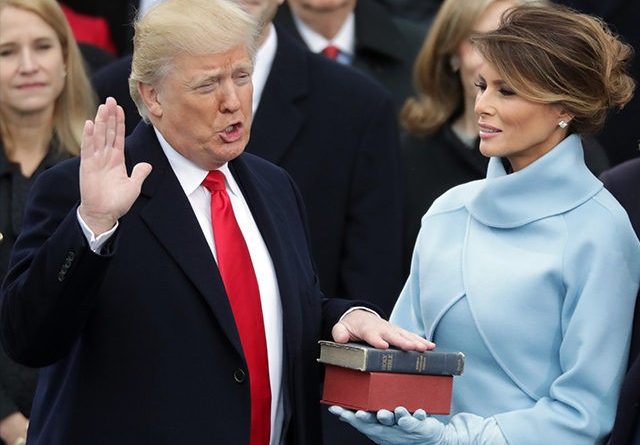James Coomey : Why our oldest law could drive impeachment
The Constitution’s command that officeholders commit to “support this Constitution” was so obvious that the Founders considered leaving it out. But they decided to include it as a reminder, down through the ages, of the core responsibility of government service. As an early Supreme Court justice wrote, “It results from the plain right of society to require some guaranty from every officer, that he will be conscientious in the discharge of his duty. Oaths have a solemn obligation upon the minds of all reflecting men.” In Article 6, Clause 3 of the Constitution, the Founders required a promise.
With its first action, Congress decreed the precise words to be spoken.
The oath has been required ever since, its form changing only slightly over the centuries. Since 1966, every federal employee (senator, congressperson, Cabinet secretary, law clerk, soldier) has made a solemn promise not just to “support and defend the Constitution of the United States” but also to “bear true faith and allegiance to the same.”
The president’s oath has always been slightly different. Because the holder of that office has unique responsibilities to the rule of law, the Constitution spelled out the exact words for that job. The president must promise not just to protect and defend the Constitution, but also to “faithfully execute the office of president of the United States.” And there is the problem for Trump, and every senator and representative.
If Congress passes a law giving a vulnerable ally hundreds of millions of dollars in military aid desperately needed to fend off a relentless Russia, and the president of the United States uses that money to coerce the desperate ally to provide electoral dirt on his likely opponent, is the president faithfully executing his office? And if the president conditions White House meetings on acquiring the same foreign dirt to help him get reelected? The answers are obvious.
If public evidence establishes that the president failed to abide his obligation to faithfully execute, where does that leave those in Congress who promised to bear true faith and allegiance to the founding charter? How can you bear true faith to a document and allow it to be wantonly violated?
I learned long ago in courtrooms that the truism about defense lawyers is often true: When they have facts, they argue facts; when they have legal arguments, they argue the law; when they have neither, they bang on the table. There has been a whole lot of table banging recently — about process, about the alleged “deep state,” “human scum” Never Trumpers, and about a supposed “coup” to reverse the will of the voters. The banging will continue about civil servants, career diplomats and military officers who simply speak the truth. The banging will be vicious and loud.
But oaths are sticky things. If, after all the table-banging, the facts show a president, in exercising the core of his powers under the Constitution — the conduct of foreign affairs and the national defense — failed to faithfully execute his office, what then? If the president used the power and money of the United States to coerce a foreign nation into helping him get reelected, what of the promise senators and representatives made?
Normally thoughtful people, such as Sen. Rob Portman (R-Ohio), appear to be searching for a way to sound principled without voting to convict the president. “I thought it was inappropriate for the president to ask a foreign government to investigate a political opponent,” he said recently, adding, “I also do not think it’s an impeachable offense.” But the oath makes that hard to pull off.
On Jan. 3, 2017, Portman most recently raised his right hand while standing in the well of the Senate. His left hand was on the Bible his wife held; then-Vice President Joe Biden presided. The senator promised to bear true faith and allegiance to the Constitution, which includes the requirement that the president faithfully execute his office.
Twenty-one years ago, Portman — then a congressman — could see his obligations clearly, when he voted to impeach Bill Clinton. He said then that “these acts are fundamentally inconsistent with the oath the President — as the nation’s chief law enforcement officer — took to ‘faithfully execute’ the laws of the United States.”
And now? The commitment has not changed; it is as old as this nation. If oaths and promises, the bedrock of the rule of law, are to mean anything, the senator and his colleagues will need to explain how they square their solemn promises with Trump’s actions. All Americans will be listening, but especially the young, who may someday have the privilege of taking that oath, with its “solemn obligation upon the minds of all reflecting” people.
James Comey is a former director of the FBI and a former deputy attorney general.
OTHER VIEW POINTS: Washington Post

